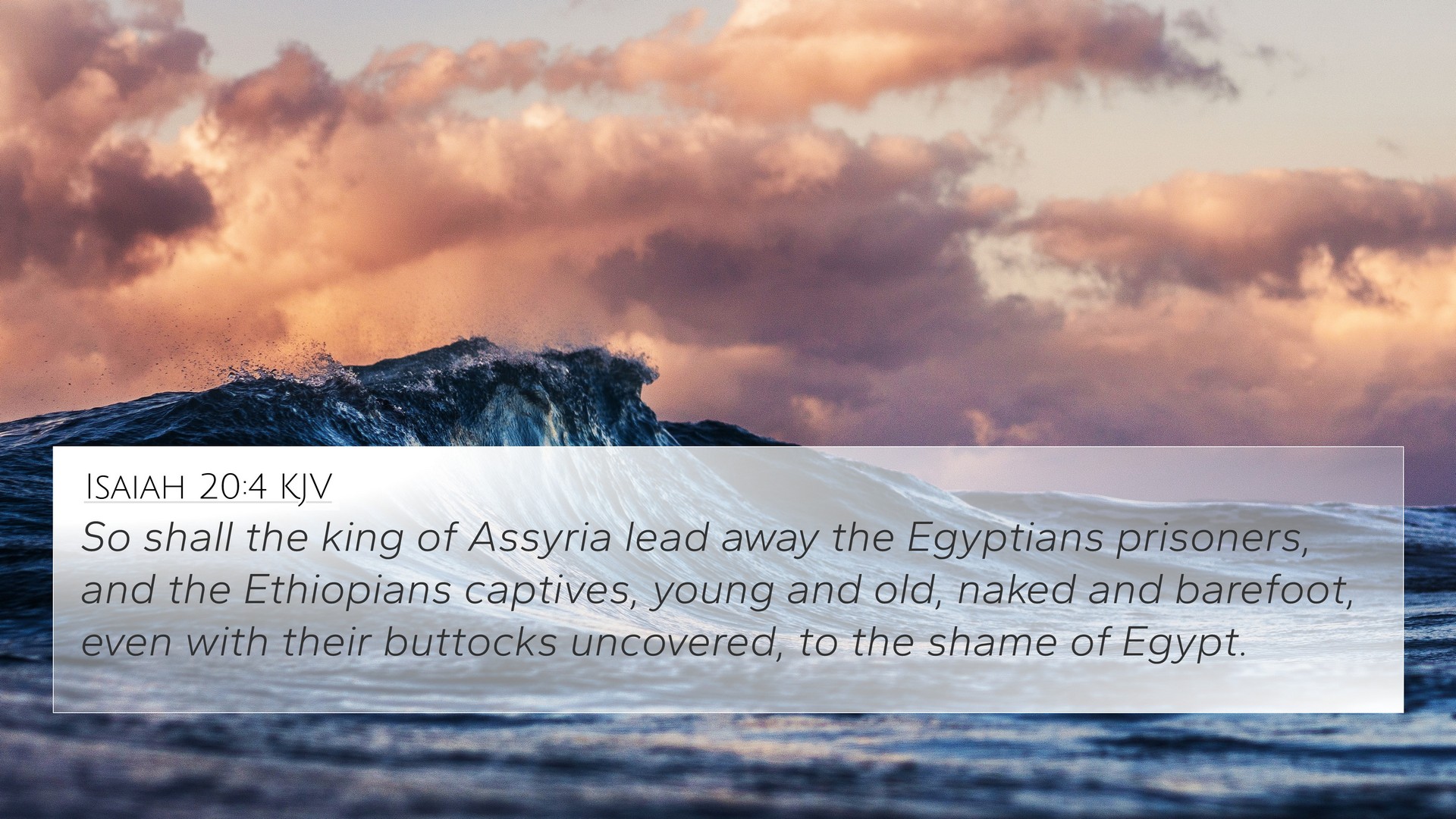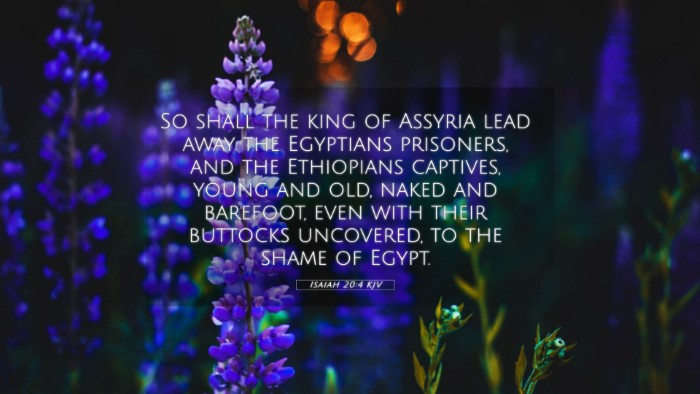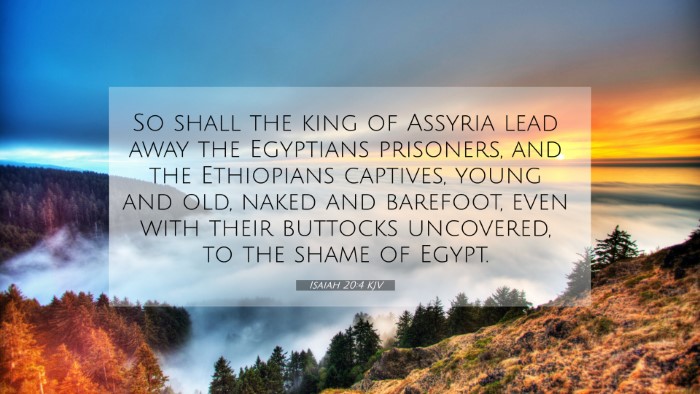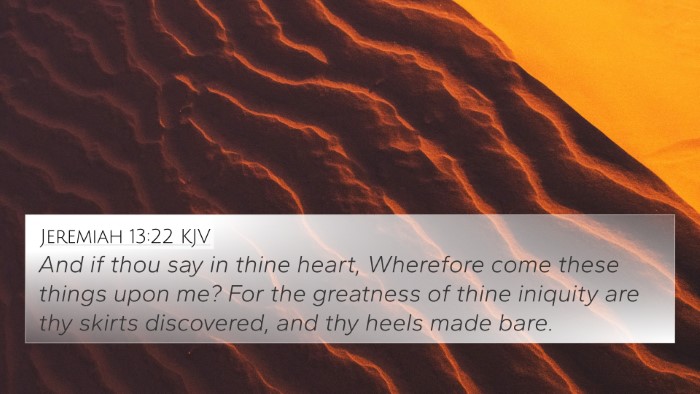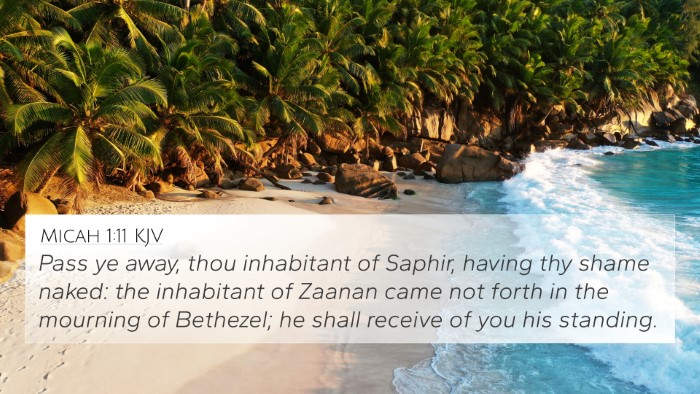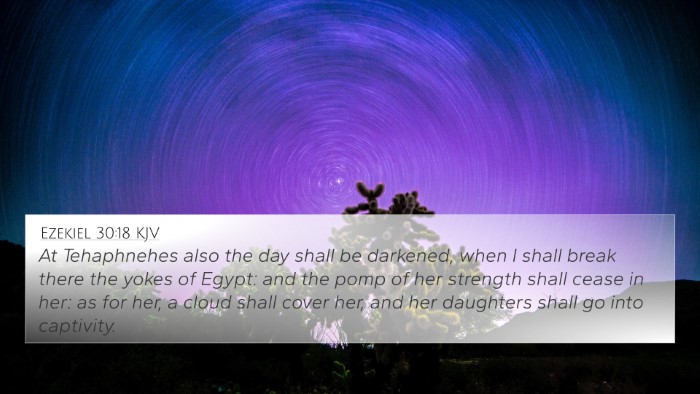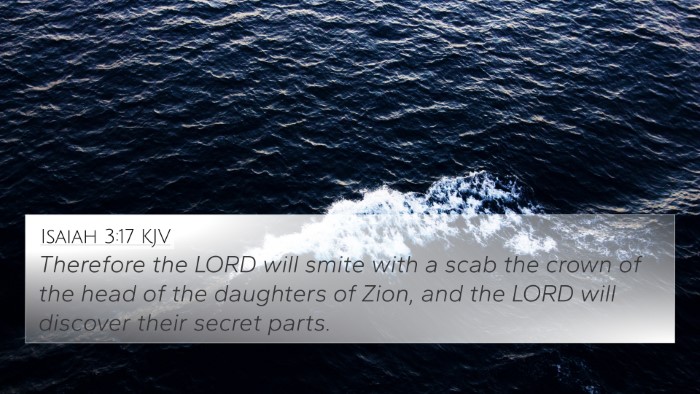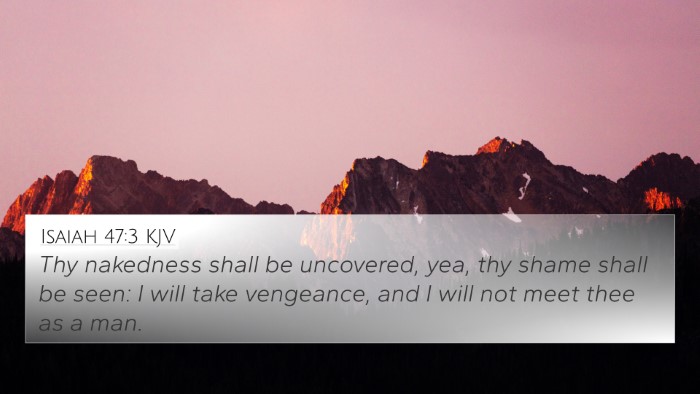Understanding Isaiah 20:4
Isaiah 20:4 states: "So shall the king of Assyria lead away the Egyptians prisoners, and the Ethiopians captives, young and old, naked and barefoot, even with their buttocks uncovered, to the shame of Egypt."
This verse portrays a vivid image of humiliation and loss, reflecting the fate of Egypt and Ethiopia under the Assyrian king's might. Through a synthesis of various commentaries, we can derive a deeper understanding of its meaning and implications.
Key Themes and Insights
- Prophetic Nature: Isaiah often embodies the prophetic warnings against nations and their impending judgments. According to Matthew Henry, this verse reveals God's sovereignty over nations and serves as a stern warning of His judgment.
- Consequences of Defiance: The captivity described here symbolizes the dire consequences of opposing God's will, as explained by Albert Barnes. The shame of being led naked and exposed illustrates the total defeat and humiliation that comes with rebellion against divine authority.
- Symbolism of Captivity: Adam Clarke elaborates on the symbolic significance of nakedness in scripture, signifying vulnerability and exposure to disgrace. This servitude illustrates their significant vulnerability when God withdraws His protection.
Bible Verse Cross-References
To enrich our study, we can explore various connections through cross-referencing biblical texts. Here are some relevant verses:
- 2 Kings 18:21: Discusses Egypt as a broken reed that cannot provide support.
- Isaiah 19:4: Predicts the capture of Egypt by a cruel master, emphasizing the theme of oppression.
- Jeremiah 46:4: Talks about the preparation for battle against Egypt, showcasing judgment.
- Ezekiel 30:4: Foretells destruction coming upon Egypt, linking to Isaiah's warnings.
- Matthew 2:15: Mentions Egypt as a place of refuge, contrasting its eventual destruction.
- Isaiah 9:1: Refers to a time of darkness for Israel, relating to judgment themes.
- Amos 1:6: Addresses judgment against Gaza, providing insight into the fates of neighboring nations.
Thematic Analysis
Isaiah 20:4 delves into themes of judgment, humiliation, and divine sovereignty. By comparing this verse with others, we can observe a pattern of God's interactions with nations. The foresight depicted in Isaiah very much aligns with the prophetic literature throughout Scripture, providing insights into:
- Divine Justice: Exploring how God enacts justice upon nations that stray from His command.
- Historical Context: Understanding the historical backdrop of Isaiah's prophecy about the Assyrian campaign against Israel and its allies.
- Comparative Bible Verse Analysis: Observing the connections between God's judgment in the Old Testament and themes of redemption in the New Testament.
- The Role of Prophets: Analyzing the responsibilities of prophets in conveying God’s warnings, much like Isaiah.
Practical Application
For those studying Scripture, Isaiah 20:4 serves as a reminder of the consequences of turning away from God. It prompts believers to reflect on their dependence on divine guidance and the importance of heeding prophetic warnings.
Tools for Bible Cross-Referencing
To enhance our study of this verse, the following tools and methods can be utilized:
- Bible Concordance: For identifying keywords and finding related scripture.
- Cross-Reference Bible Study: A methodical approach to exploring connections between verses.
- Bible Cross-Reference Guide: Utilizing guides to find relevant biblical links and thematic connections.
- Scriptural Cross-Referencing: Identifying parallels and contrasts within biblical texts.
Conclusion
In summary, Isaiah 20:4 serves as a powerful testament to God's judgment on nations that defy His will. It invites a thorough examination of scripture through cross-references that deepen our understanding of biblical themes and their interconnections. Through the rich tapestry of prophetic literature, believers are reminded of both God's justice and the hope of redemption.
